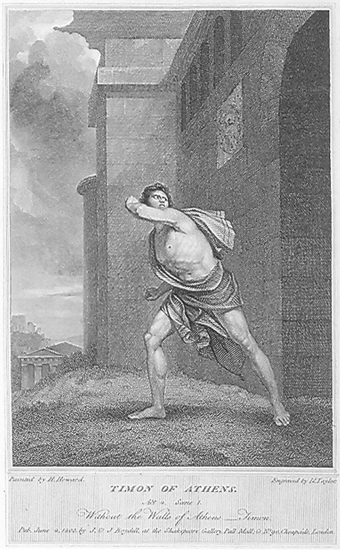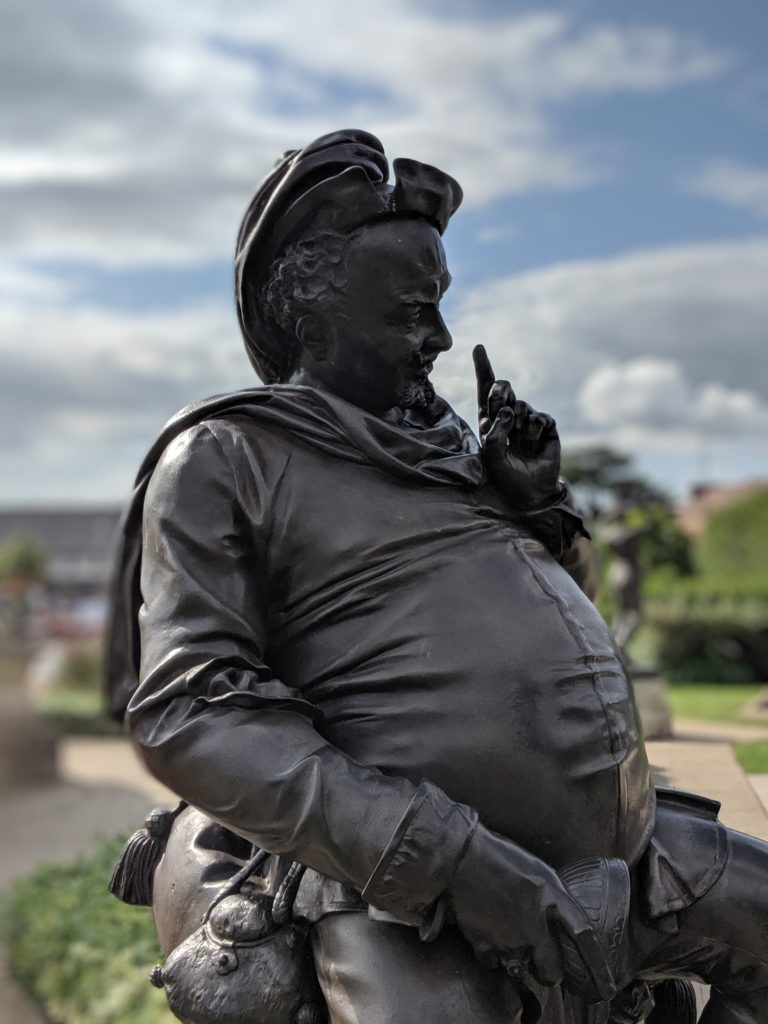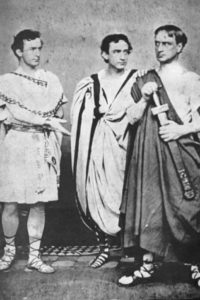So I proposed a question on Twitter the other day:
Which Shakespearean character is most associated with tremendous wealth? Nothing symbolic or metaphorical, I’m talking about good old-fashioned net worth. Shylock’s not really what I’m looking for.
https://twitter.com/ShakespeareGeek
I don’t particularly think of Shylock as wealthy, but I do think of him as being “all about the ducats.” In theory, somebody who’s very … careful? … with their money is a potential candidate for someone who is very wealthy. But I wasn’t looking for technicalities, I was looking for a character that just screamed, “Look how rich I am.”
The responses on Twitter were intriguing, and much more varied than I would have expected! There was one in particular I assumed would win (do you have the same one in mind?) so I was pleasantly surprised to see the other contenders…
Each Receiving One Vote
Orsino and Olivia from Twelfth Night each got a vote (in two separate responses from two separate people).
Lord Capulet from Romeo and Juliet and Baptista from Taming of the Shrew each got a vote, because if you’re going to woo a young Shakespearean lady, make sure she’s got a rich dad.
Speaking of Shylock, Antonio from Merchant of Venice got a vote, with the caveat that he basically lost it all.
Julius Caesar was emperor of Rome, and you have to figure that’s a pretty wealthy position to be in, even if it’s not explicitly discussed in the play.
Tamora (Titus Andronicus) made the list as well, though I don’t know enough about the play to speak to why.
How about Falstaff (Henry IV)? Anybody ever think of him as wealthy? He got a vote.
Receiving Two Votes
Portia, from Merchant of Venice, gets more votes than Antonio for being in the “super-rich tier” where suitors are bankrupting themselves wooing her.
“Any of the English kings” was mentioned, though Richard II specifically was called out twice.
Three Votes
Speaking of kings, King Lear got three votes. At the beginning, maybe, sure.
The Runner Up with Five Votes
Guesses? Anybody? Cleopatra (Antony and Cleopatra) garnered much praise, what with her “poop of beaten gold” and everything.
And the Winner is …
With a whopping ELEVEN votes, more than double any other contender, our winner for “Shakespearean character most associated with tremendous wealth” is …
Timon of Athens! Exactly who we thought it would be when we asked the question :). “Easy,” said one response. “Definitely the most obvious,” said another.
But there was a reason why I asked in the first place, too. People also commented “at least on paper” and “maybe in principle”, too. “At least in the beginning,” several responses noted. I was curious whether he’s generally regarded as wealthy, or as someone who lost it all. Now I guess we know the answer!



 I wonder if somebody confused “drums of war” for “dogs of war” when they attributed this quote to Julius Caesar? Nothing about this quote shows up in the play, of course. I suppose there’s at least some possibility that it appears in actual Caesar’s actual writings, since I’m not an expert in those. But others before me have researched this question and apparently nope, not real Caesar either. This quote doesn’t appear to exist before 2001.
I wonder if somebody confused “drums of war” for “dogs of war” when they attributed this quote to Julius Caesar? Nothing about this quote shows up in the play, of course. I suppose there’s at least some possibility that it appears in actual Caesar’s actual writings, since I’m not an expert in those. But others before me have researched this question and apparently nope, not real Caesar either. This quote doesn’t appear to exist before 2001. Over the years I’ve seen many Shakespeare lists. Instead of linking to yet another one I thought it would be fun to combine several and come up with my own, the Shakespeare Geek Top 10. This is not my opinion, this is the mathematical analysis (according to my own algorithm :)) from a variety of places, some here and some elsewhere, that people have voted on a general “top 10” for Shakespeare’s plays.
Over the years I’ve seen many Shakespeare lists. Instead of linking to yet another one I thought it would be fun to combine several and come up with my own, the Shakespeare Geek Top 10. This is not my opinion, this is the mathematical analysis (according to my own algorithm :)) from a variety of places, some here and some elsewhere, that people have voted on a general “top 10” for Shakespeare’s plays.